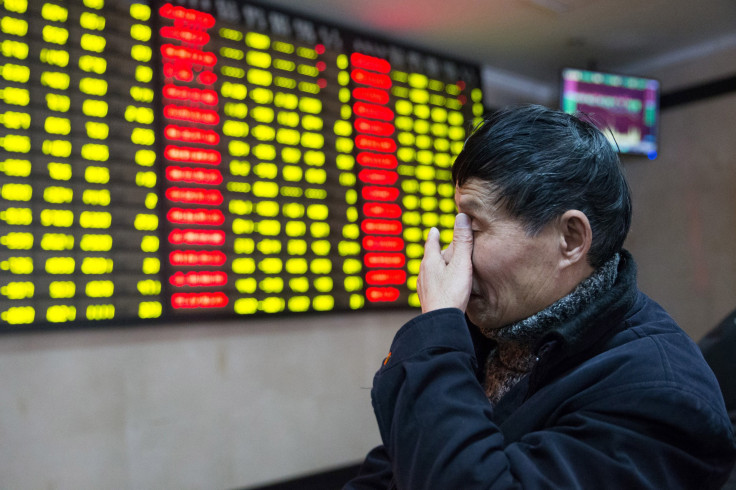Chinese Stocks End Modest Rally, Plunge Over Liquidity Fears

Ending a modest rally that has stabilized Chinese stocks in recent weeks, the Shanghai Composite Index plunged 6.4 percent Thursday — its biggest intra-day drop in over a month. The sell-off, which pushed the benchmark index to a three-week low, also affected trading in Hong Kong’s Hang Seng Index, which ended the day down 1.6 percent.
While the immediate cause of the rout was not clear, many analysts attributed the sharp fall to worries over tighter liquidity in the market, and to profit-taking by investors — who took advantage of a semblance of stability prevailing in Chinese markets since the central bank injected liquidity late January.
Investors are also believed to be exercising caution ahead of a G20 meeting in Shanghai Friday, when finance ministers and central bank governors from the bloc would come under pressure to get the global economy back on track.
“Liquidity is tightening again in the market, and global negative tone feeding through leading to profit taking in small caps,” Michael Every, head of financial markets research for Asia Pacific at Rabobank, told CNBC.
By its close, the smaller Shenzhen Composite Index had also dropped 7.3 percent. Over 1,300 stocks in Shanghai and Shenzhen reportedly fell by 10 percent — the maximum level that Chinese authorities allow an individual stock to fall in one day.
Elsewhere in the region, shares were mixed. While Hong Kong’s Hang Seng and India’s S&P BSE Sensex closed down, Japan’s Nikkei 225 and South Korea’s Kospi Composite ended the day up 1.4 percent and 0.3 percent respectively.
"Japanese markets were enjoying a bit of an oil-induced recovery alongside some weakening of the yen,” Angus Nicholson from the spread better IG wrote in a note. “The yen has not responded well to the introduction of negative rates, and the implicit message is markets want to see asset purchases from the Bank of Japan not further negative rates.”
The yen, which has benefitted from its safe haven status and strengthened against the dollar in recent weeks, was trading at 112.18 at 6:05 a.m. EST.
Meanwhile, in Europe, shares bounced back after dropping for two days as investors shrugged off the stock slump in China. The pan-European Stoxx 600 was up 1.4 percent during early trade, while the U.K.’s FTSE 100 — which has been hit by fears over the country’s future in the European Union — was up 2 percent. Shares in Germany’s DAX and France’s CAC 40 also recovered, and were trading up 0.9 percent and 1.7 percent respectively.
U.S. stock futures, however, pointed to a flat open Thursday, while in the oil markets, Brent crude traded at around $34.05 — down 1.05 percent.
“At the moment the markets just feel like a chicken with its head cut off,” John Hardy, Saxo Bank’s head of foreign exchange strategy, told Reuters. “Everything is swinging around on the daily moves on oil. There was a pretty remarkable comeback by Wall Street yesterday despite some weak data so it feels like it's a bit dodgy till we get past the G-20 meeting.”
© Copyright IBTimes 2025. All rights reserved.






















